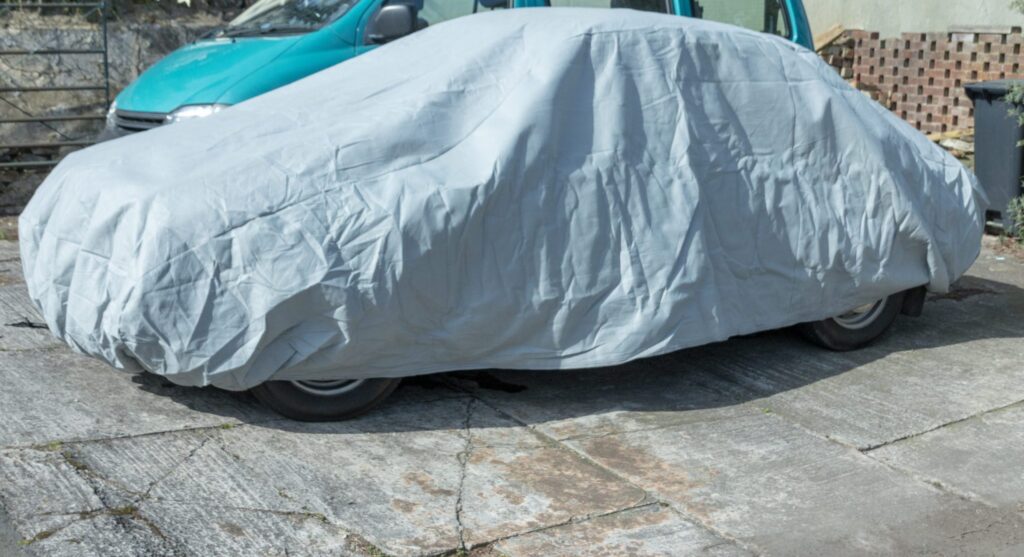What happens when the constitutional protections against searching your home without a warrant conflict with the automobile exception to a warrantless search? The case of Collins v. Virgina.
Two classic doctrines in Fourth Amendment protections in searches collide in Collins v. Virgina, and on January 9, 2018, the United States Supreme Court heard oral arguments to help them sort out this conflict.
In this case, law enforcement officers were investigating a report of a number of traffic infractions and a high speed chase by a black and orange motorcycle. Weeks later, they later approached a residence where Mr. Collins typically stays, and found a partially covered motorcycle parked a few feet from the home on the property. Without consent and without a warrant, law enforcement entered the property and uncovered the motorcycle. They later matched the license plate to the motorcycle, and charged Collins with a number of charges associated with the motorcycle. The highest court in Virginia found the search lawful because law enforcement had probable cause to believe the motorcycle was contraband, due to evidence of the motorcycle being previously stolen.
Law enforcement usually must have a warrant when searching someone’s property. This is especially emphasized when searching the home. Despite this rule, the Supreme Court has carved out a few exceptions for a warrantless search. One of these exceptions is known as the “automobile exception”. Because vehicles are readily mobile at any point, Courts have allowed a more relaxed standard in searching them to avoid them driving away while waiting for a warrant. Law enforcement need only have “probable cause” that the vehicle will have evidence of contraband or a crime to allow a warrantless search of the car.
During the oral argument, the Court agreed that Law Enforcement did in fact search the motorcycle by removing the tarp, and did so without a warrant. The main focus was whether there was a heightened standard to search a vehicle parked a few feet from a suspect’s home, as opposed to the side of the road, where the automobile exception usually is not questioned. Since a motorcycle is just as mobile on the side of the road as in a driveway, the justification for a warrantless search remains intact, according to the government. The attorney for Collins argued that the main point of the case was whether the few feet from the street to the driveway has additional Constitutional protections that make the automobile exception invalid. If this area is deemed the “curtilage of the home”, the warrantless search exception for automobiles would not justify this search, as searches of homes tend to have the highest privacy protections. However, if the Court concludes that this area around the home does not have the same protections as the actual home, the search will likely be considered proper.
The Court addressed two other exceptions that allow warrantless searches, the “plain view” doctrine, and the “exigent circumstance” doctrine, to see if these also played a factor in this case. Under the “plain view” doctrine, officers are allowed to search any property that they can readily see. For example, if this motorcycle was at the end of the driveway, with no tarp, the police would be able to observe the motorcycle from the street and gather information about it, such as its color, make and model, and license plate number. They would be able to do this without a warrant, as the motorcycle is in plain view of the street, where the police are allowed. The “exigent circumstance” exception allows law enforcement to conduct a warrantless search when there is reason to believe that, if the search must wait for a warrant, then the evidence will likely be tampered with or destroyed. This type of exception occurs often with drug-related investigations, as drugs can be quickly disposed of. The Supreme Court thought this exception may also apply in conjunction with the automobile exception, as someone could easily drive away with the motorcycle during the time it took the police to obtain a warrant, even if someone was not actually on the motorcycle ready to drive off at that moment. However, the Court worried about how this line of thinking could be overreaching, and allow law enforcement to search any place a vehicle may be, even if it is in a garage or closed off building, in the name of exigent circumstances.
If the Court decides to uphold the lower court’s decision, and find this search was reasonable, this decision would greatly reduce the protection of property, especially vehicles, that is on private property but is not physically in the home itself.
For more information about this case, you may visit SCOTUS blog’s website by clicking this link. If you have been charged with a crime, and you believe the police violated your Fourth Amendment rights against unlawful searches, contact one of our criminal defense attorneys at MCDGroup today to discuss your case.
AtMCDGroup ,we help good people who made bad decisions avoid criminal consequences.


